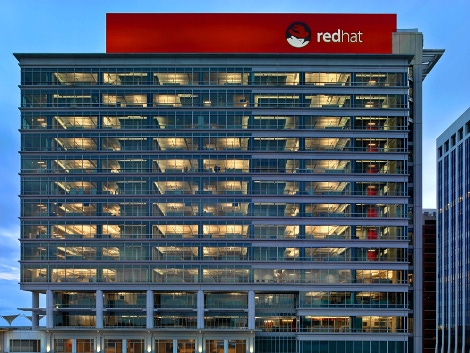
Red Hat is betting another serious sum on Kubernetes. The Raleigh, North Carolina-based open source enterprise software powerhouse announced Tuesday an agreement to buy CoreOS, the San Francisco-based startup that was behind a crucial component in Kubernetes and has otherwise been a major force behind development of the application container ecosystem.
For its $250 million Red Hat is getting a stable of engineers who for years have been living and breathing containers and Kubernetes, the Google-born open source version of the container orchestration system that runs in the giant’s own data centers. etcd, the piece of software that manages consistency among servers in clusters running Kubernetes, was born at CoreOS, and the company continues to maintain the project.
Kubernetes, whose development is now directed by the Linux Foundation, has become the most popular container orchestration system, and enterprise tech vendors small and large have been racing to package, repackage, and sell it to their enterprise customers.
CoreOS's other projects include flannel, which is a virtual network that links containers in a cluster and controls routing between them; the container engine rkt; and the lightweight, made-for-containers Linux distribution called Container Linux.
But building open source software alone will not feed a staff of 130 and keep the lights on in offices in San Francisco, New York, and Berlin. CoreOS’s paid products include its enterprise-ready distribution of Kubernetes called Tectonic and the enterprise-ready container registry called Quay, result of its acquisition of a two-person ex-Googler startup Quay.io in 2014.

Alex Polvi, founder and CEO of CoreOS, wants to offer a full suite of tools that will enable enterprises to deploy ‘warehouse-scale’ computing infrastructure. (Photo: CoreOS)
Besides engineers, technology, and a few big-name customers – CoreOS lists ebay, Salesforce, Ticketmaster, and Verizon among others on its website – Red Hat, which got involved in Kubernetes later than CoreOS did, is hoping to extend its influence in the “upstream” Kubernetes community. In other words, it wants to be closer to the circle of Kubernetes’ original creators. Red Hat is currently the second-biggest contributor to the project, while Google is the biggest.
The companies have said little about what the acquisition may mean in terms of product. Red Hat promised more details in the future, for now only forecasting some enhancements to OpenShift, its enterprise Platform-as-a-Service that runs on top of Kubernetes.
[Container World delivers real-world case studies from the cloud-native ecosystem, hands-on technical education, the best speakers and cutting-edge startups under one roof. Get your ticket.]
Red Hat was even more vague about the future of overlapping technologies, such as Atomic Host, the made-for-containers version of Red Hat Enterprise Linux, and the container registry component in OpenShift. The company said it would use elements of the competing CoreOS offerings to enhance its own and review and reconcile with Atomic “some of the delivery mechanisms pioneered by [CoreOS’s] Container Linux.”
At least for now, it has no plans to introduce another Linux distribution: “Red Hat Enterprise Linux’s content, the foundation of our application ecosystem, will remain our only Linux offering.”
About the Author
You May Also Like







